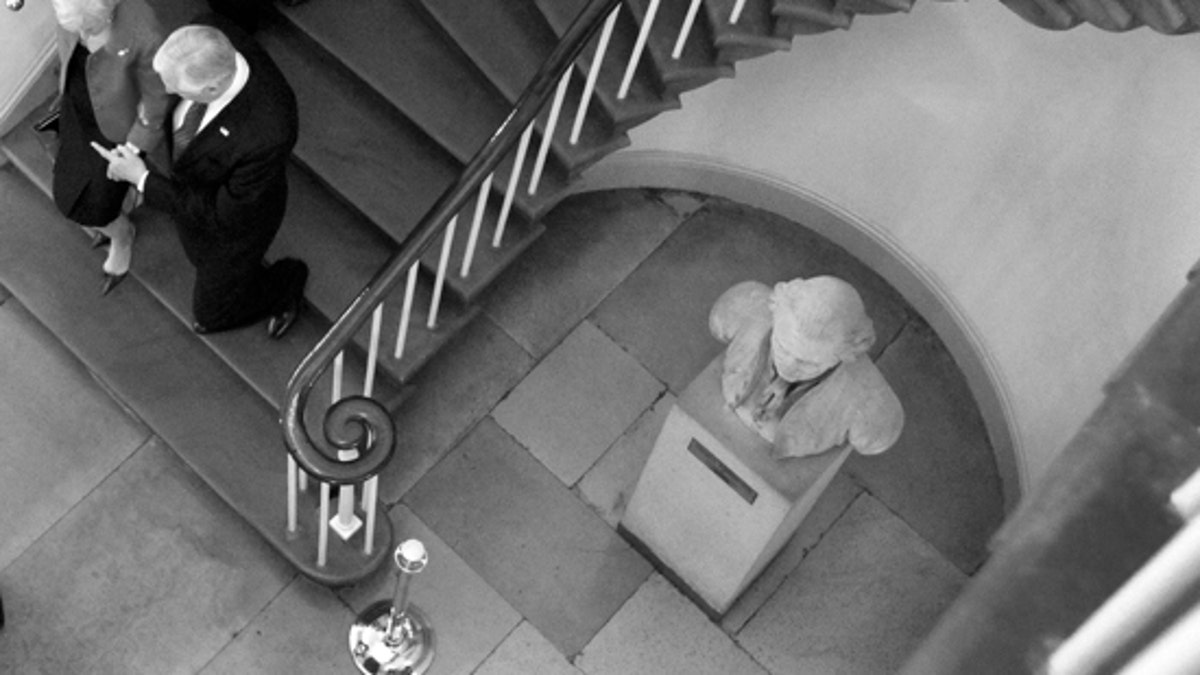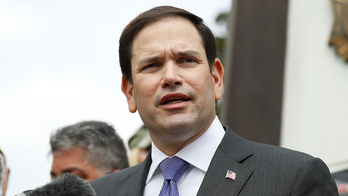
Rep. Steny Hoyer, D-Md., talks with Secretary of Health and Human Services Kathleen Sebelius as the house prepares to vote on health care reform in the U.S. Capitol in Washington, Sunday, March 21, 2010. (AP)
One of the key components of President Obama's health care overhaul mandates the creation of state-run health insurance exchanges, which will enable consumers to compare benefits and prices of competing plans. But some key questions remain to be answered before they are up and running in 2014.
The exchanges are expected to create a more affordable marketplace for individuals and small businesses to buy health insurance by offering plans with different tiers of comprehensive coverage -- bronze, silver, gold and platinum -- in a transparent, comparative system. Individuals earning less than about $43,000, or less than $88,000 for a family of four, will qualify for subsidies. Insurers, in turn, will no longer be allowed to charge higher rates based on health conditions, and they will be required to spend up to 85 percent of premiums on medical care rather than salaries.
The basic premise, according to Judy Solomon, senior fellow at the Center on Budget and Policy Priorities, is that "insurers are competing for members on the basis of price and quality rather than on the basis of getting the people who are healthiest and have the lowest risk."
To be successful, Solomon said, the exchanges should limit the number and variety of plans and require each insurer to cover a wide range of people with varying levels of health costs.
But with "varying levels of enthusiasm" among states, Solomon said it remains to be seen how quickly some will establish their exchanges.
"There's myriad questions that have to be answered," she told FoxNews.com. "There's a ton of work to be done over the next three and a half years to get these ready to go."
Among those questions is exactly how the Department of Health and Human Services (HHS) will oversee and regulate these entities, as well as how they will vary from state to state. Theoretically, each state could offer drastically different options.
For example, a large state like Texas could potentially offer many more coverage choices than, say, Vermont, where officials may ultimately decide to create regional exchanges with neighboring states to offer more choices to consumers.
"I think we'll see a lot of variation," Solomon said. "There's a lot of work to be done at the federal level in terms of regulatory powers and direction to the states."
A spokesman for HHS Secretary Kathleen Sebelius did not immediately return a request for comment.
Mike Tanner, senior fellow at the Cato Institute, a Washington-based libertarian think tank, said he expects states to approach the exchanges in one of two ways -- either as a pooling purchasing mechanism or as a regulatory function.
"The danger is that is goes beyond that and becomes a hyper-regulatory body," Tanner told FoxNews.com, referring to the potential of an insurer being blocked from an exchange depending on the services or benefits it offers. "It's hard to say exactly how this is going to work in practice."
Alan Weil, executive director of the National Academy for State Health Policy, called for a "better sense" of the kind of infrastructure, resources and money needed to create and maintain the exchanges.
"We need a better sense of what it's going to take to do these," Weil said. "The good news is there's time to learn the answer to that."
Weil called on HHS officials to define precise expectations of the exchanges, which Obama himself said he'll use to purchase insurance if he's in his second term in 2014.
"We can assume that HHS will at some point define more precise regulations as to their expectations of these plans," Weil said. "It's reasonable to expect that HHS will expand on those ideas and say, 'This is the kind of thing you need to be doing if you're running an exchange.'"
And while the exchanges are designed to "significantly" reduce administrative and overhead costs associated with health care, Weil said just because they're created doesn't mean consumers will come.
"Building a shopping mall does not bring people in automatically with their checkbooks ready to buy," he said. "It all sounds good on paper but you've got to do the work. At the end of the day, people are going to have to make their choice. That's a lot more complicated than setting up an exchange and saying people have to buy."




